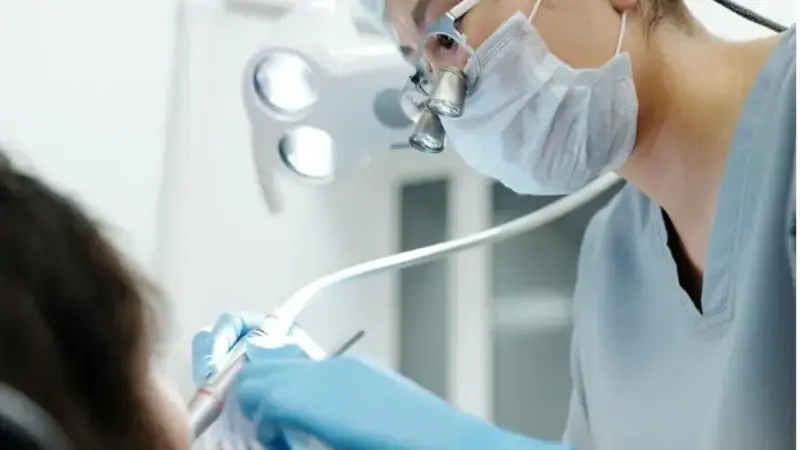To help alleviate this burden, the role of a medical scribe has become increasingly important in healthcare settings. Medical scribes assist physicians by taking over the task of documenting patient encounters, allowing doctors to focus more on patient care. This article provides an in-depth look at what a medical scribe does, the skills required, the benefits of the position, and how it fits into the broader healthcare landscape.
What Is a Medical Scribe?
A medical scribe is a trained professional who specializes in documenting patient interactions during medical visits. This documentation includes the patient’s history, physical examination findings, lab results, clinical notes, and any other relevant information. The scribe enters this information into the Electronic Health Record (EHR) system in real-time, often while shadowing the physician during patient consultations.
The primary goal of a medical scribe is to free up the physician’s time, enabling them to spend more time with patients and less on paperwork. Scribes are commonly found in a variety of healthcare settings, including hospitals, outpatient clinics, emergency departments, and private practices.
Responsibilities of a Medical Scribe
The duties of a medical scribe can vary depending on the healthcare setting and the specific needs of the physician. However, some common responsibilities include:
- Real-Time Documentation: Scribes document the physician’s assessment and plan for each patient, ensuring that all details are accurately recorded in the EHR.
- Managing Patient Records: They organize and update patient records, ensuring that all information is current and accessible.
- Assisting with Workflow: Scribes help maintain the flow of patient care by managing the documentation process, allowing the physician to move efficiently from one patient to the next.
- Reviewing and Verifying Information: They may assist in reviewing past medical records and ensuring that all relevant information is included in the patient’s file.
- Supporting Physicians with Administrative Tasks: This may include managing appointment schedules, coordinating follow-up care, and handling communication between healthcare providers.
Skills and Qualifications Required
To be successful as a medical scribe, certain skills and qualifications are essential:
- Attention to Detail: Accuracy is critical in medical documentation. Scribes must be meticulous in recording information to avoid errors in patient records.
- Medical Terminology Knowledge: A solid understanding of medical terminology, anatomy, and physiology is necessary to accurately document physician-patient interactions.
- Strong Typing and Computer Skills: Scribes often need to document information quickly and efficiently, so fast typing skills and familiarity with EHR systems are important.
- Communication Skills: Scribes must effectively communicate with physicians and other healthcare team members, ensuring that all information is clear and concise.
- Adaptability and Multitasking: The ability to handle multiple tasks simultaneously and adapt to the fast-paced environment of a healthcare setting is crucial.
Benefits of Being a Medical Scribe
Working as a medical scribe offers several benefits, particularly for individuals interested in pursuing a career in healthcare:
- Insight into the Medical Field: Scribes gain firsthand experience in a clinical setting, observing patient care and learning from healthcare professionals.
- Preparation for Future Healthcare Careers: For pre-med students or those considering medical school, scribing provides valuable experience and a deeper understanding of the healthcare system.
- Professional Networking: Scribes have the opportunity to build relationships with physicians, nurses, and other healthcare professionals, which can be beneficial for future career opportunities.
- Developing Medical Knowledge: The role allows for the continuous expansion of medical knowledge through direct exposure to patient cases and physician decision-making.
Challenges of the Medical Scribe Role
While the position offers many rewards, it also comes with challenges:
- High-Stress Environment: The healthcare setting can be demanding, and scribes must keep up with the fast pace while maintaining accuracy.
- Long Hours and Variable Shifts: Scribes often work long hours and may have to adapt to varying shifts, particularly in emergency or hospital settings.
- Emotional Demands: Being involved in patient care can be emotionally taxing, especially when dealing with difficult cases or witnessing distressing situations.
The Impact of Medical Scribes on Healthcare
The introduction of medical scribes into healthcare has had a significant impact:
- Improved Physician Efficiency: By handling documentation, scribes allow physicians to see more patients and spend more time on direct patient care, enhancing overall productivity.
- Enhanced Patient Experience: With scribes managing documentation, physicians can focus more on the patient, improving communication and the quality of care.
- Reduced Physician Burnout: The administrative burden of EHR documentation is a known factor in physician burnout. Scribes help reduce this burden, contributing to better work-life balance for healthcare providers.
How to Become a Medical Scribe
For those interested in becoming a medical scribe, here are the general steps:
- Education: While a specific degree is not always required, most scribes have at least some college education, particularly in life sciences or pre-medical studies.
- Training: Many medical scribe positions offer on-the-job training, but there are also scribe training programs available that cover medical terminology, documentation practices, and EHR usage.
- Certification: Although not mandatory, certification programs such as the Medical Scribe Certification & Aptitude Test (MSCAT) can enhance job prospects.
- Job Search: Medical scribes are employed in various healthcare settings, so job opportunities can be found in hospitals, clinics, and private practices.
Conclusion
The role of a medical scribe is a vital one in today’s healthcare landscape, offering a unique blend of administrative support and clinical insight. For those with an interest in medicine and a knack for detail-oriented work, becoming a medical scribe can be a fulfilling and educational career path. Whether as a stepping stone to a future in healthcare or as a long-term position, medical scribes contribute significantly to the efficiency and quality of patient care.



